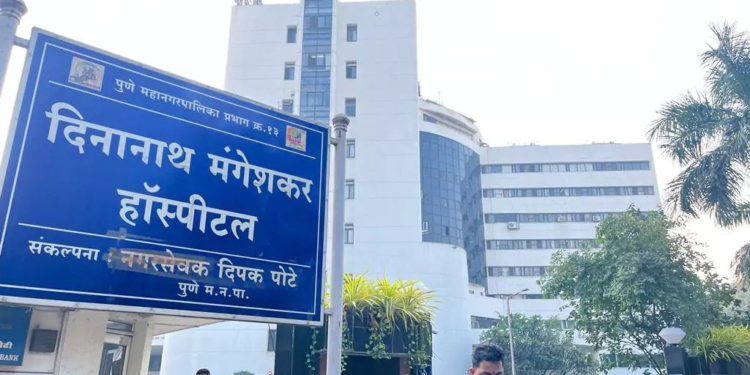PUNE: Deenanath Mangeshkar Hospital, long regarded for its charitable ethos, has come under sharp criticism amid allegations of medical negligence and significant financial irregularities. A recent controversy involving the death of a patient has sparked public outrage, while Pune Municipal Corporation (PMC) records show that the hospital has not paid property taxes amounting to ₹27.38 crore since 2019.
As per official data from the PMC, the Lata Mangeshkar Medical Foundation—which manages the hospital—has failed to clear property tax payments for over six years. While charitable institutions are eligible for certain tax relaxations, the unpaid amount of ₹27,38,62,874 remains undisputed. According to civic officials, despite several reminders and notices, no payment has been made so far.
“The property tax dues from the hospital date back to 2019. We have issued multiple follow-ups, yet the payment remains pending,” said a PMC official on condition of anonymity.
The financial revelations come on the heels of a tragic incident involving Tanisha Bhise, a pregnant woman allegedly denied emergency care at the hospital for not depositing ₹10 lakh upfront. Bhise, the wife of a personal aide to BJP MLC Amit Gorkhe, reportedly died after giving birth to twins at another facility. The case has since led to demands for stricter oversight of private and charitable healthcare institutions.
Adding to the controversy, several patients have claimed that the hospital does not honor the Mahatma Phule Jan Arogya Yojana—a government-funded health insurance scheme aimed at helping low-income families access free or subsidized healthcare. One patient shared that they were handed a written note by hospital staff indicating the scheme was not applicable at the facility.
“This completely defeats the purpose of offering concessions to such institutions,” said an activist from a local health rights group. “If a hospital claims to be charitable, it must also provide access to government health schemes meant for the poor.”
The unfolding situation has reignited a broader debate on how charitable hospitals are monitored and whether existing policies offer enough checks and balances. As the case continues in court, questions remain about the hospital’s compliance with its social obligations and the PMC’s role in enforcing civic accountability.
For now, both public trust and institutional integrity hang in the balance.


















